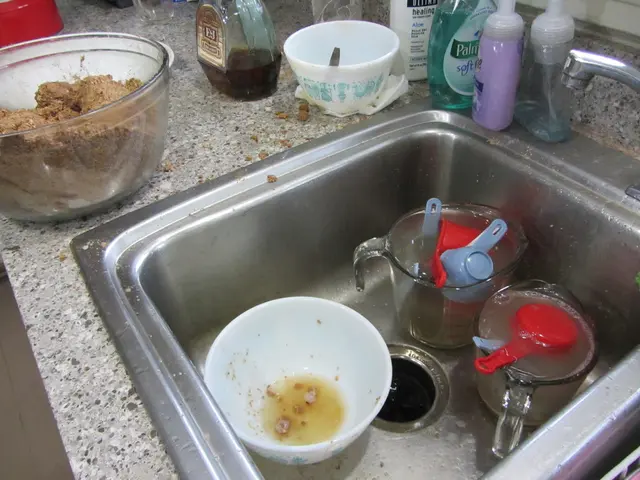Winners Announced for the 2024 Green Chemistry Challenge
In the realm of science and technology, advancements are being made that promise to revolutionize the production of essential chemicals and improve agricultural practices. Here are some of the latest developments that have caught our attention.
Firstly, Viridis Chemical Company has been honoured with the Small Business Award in the 2024 Green Chemistry Challenge Awards. The company's innovative approach to chemical production includes a new process for producing renewable ethyl acetate from corn ethanol, a drop-in replacement for fossil fuel-based ethyl acetate. This process also reduces environmental impacts compared to traditional esterification and direct addition methods in most environmental impact categories.
The dehydration of bioethanol in Viridis' process produces hydrogen gas, which is used to provide about 40 percent of the plant's energy needs. Additionally, the smaller equipment required for this process results in a shrunken facility's physical footprint, reducing energy use even further.
Meanwhile, Merck & Co., Inc. has developed a new continuous process for manufacturing its PD-1 therapy, KEYTRUDA® (pembrolizumab). This continuous process reduces the energy and water needed, as well as using consumables more efficiently. As a result, Merck estimates this continuous manufacturing single-use process reduces energy consumption for Keytruda synthesis by about 4.5-fold; reduces water use by 4-fold; and reduces raw material usage by about 2-fold.
In the agricultural sector, Pro Farm Group, a subsidiary of Bioceres Crop Solutions, has developed RinoTec, an enhanced microbial pesticide for crops including corn, cotton, soy, and wheat. RinoTec is 'readily biodegradable' and can replace several commonly used synthetic pesticide products. It is based on a microbe with natural pesticidal effects and is engineered to produce more of the natural pesticide compound, reducing the application rate.
Similarly, PhoSul has developed an enhanced phosphate rock fertilizer that avoids hazards associated with traditional phosphate fertilizer production and improves performance compared to existing rock fertilizers. PhoSul's fertilizer consists of spherical granules of phosphate rock with other materials that improve phosphate availability for plants, avoiding the need for acid processing and associated wastes.
Lastly, Professor Dionisios G. Vlachos has developed new synthetic methods for producing lubricant base oils from renewable feedstocks. His team has developed three classes of bio-lubricant base oils with different properties, which can provide comparable or better performance to existing technologies.
These innovative advancements highlight a promising future for sustainable chemical production and agriculture, with companies and researchers continually pushing the boundaries of what is possible.
Read also:
- Transitioning to Electric Vehicles Places Heavy Demand on Power Grids
- E-mobility continues its progress after a decade since the scandal, staying on course
- The Commission deems the assistance program to be in agreement with the domestic market regulations.
- Innovative Garments and Accessories Producing Energy: Exploring Unconventional Sources for Renewable Power








